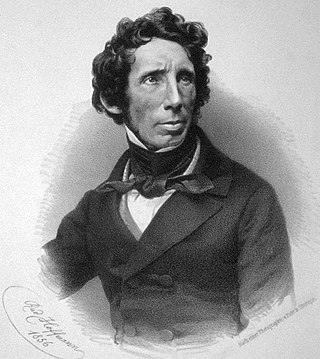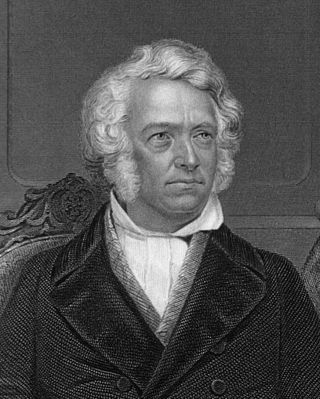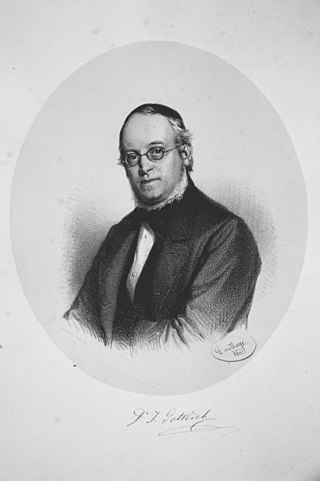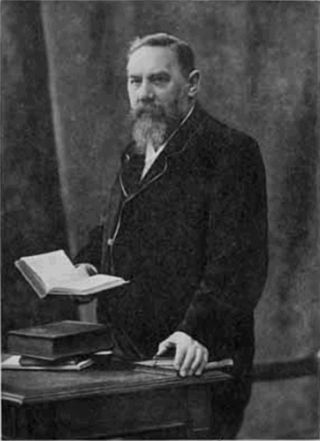
Friedrich Wöhler FRS(For) HonFRSE was a German chemist known for his work in both organic and inorganic chemistry, being the first to isolate the chemical elements beryllium and yttrium in pure metallic form. He was the first to prepare several inorganic compounds, including silane and silicon nitride.

Richard Robert Ernst was a Swiss physical chemist and Nobel laureate.

Georg Ernst Stahl was a German chemist, physician and philosopher. He was a supporter of vitalism, and until the late 18th century his works on phlogiston were accepted as an explanation for chemical processes.

Leopold Gmelin was a German chemist. Gmelin was a professor at the University of Heidelberg. He worked on the red prussiate and created Gmelin's test, and wrote his Handbook of Chemistry, which over successive editions became a standard reference work still in use.

Rudolph Arthur Marcus is a Canadian-born American chemist who received the 1992 Nobel Prize in Chemistry "for his contributions to the theory of electron transfer reactions in chemical systems". Marcus theory, named after him, provides a thermodynamic and kinetic framework for describing one electron outer-sphere electron transfer. He is a professor at Caltech, Nanyang Technological University, Singapore and a member of the International Academy of Quantum Molecular Science.

Lviv Polytechnic National University is a public university in Lviv, Ukraine. It was founded in 1816.

Georg Bredig was a German physical chemist. Bredig was a faculty member at the University of Leipzig (1895-1901) and professor of chemistry at Heidelberg (1901–1910); Technische Hochschule, Zurich (1910); and Technische Hochschule, Karlsruhe (1911–1933).

François Diederich was a Luxembourgian chemist specializing in organic chemistry.
Othmar Zeidler was an Austrian chemist credited with the first synthesis of DDT.

Johann Gottlieb was an Austrian chemist who first synthesized Propionic acid. He is also known for describing and naming Paramylon.
The HIST Award for Outstanding Achievement in the History of Chemistry (2013–present) is given by the Division of the History of Chemistry of the American Chemical Society (ACS). The award was originally known as the Dexter Award (1956–2001) and then briefly as the Sidney M. Edelstein Award (2002–2009), both given by the ACS.
The Royal Netherlands Chemical Society is a learned society and professional association founded in 1903 to represent the interests of chemists and chemical engineers in the Netherlands. Currently the organisation has approximately 7,400 members.

Ernst Wilhelm Büchner was the German industrial chemist after whom the Büchner flask and Büchner funnel are named. The patent for his two inventions was published in 1888.

Sir John Shipley Rowlinson was a British chemist. He attended Oxford University, where he completed his undergraduate studies in 1948 and doctoral in 1950. He then became research associate at University of Wisconsin (1950–1951), lecturer at University of Manchester (1951–1961), Professor at Imperial College London (1961–1973) and back at Oxford from 1974 to his retirement in 1993.

The Société Chimique de France (SCF) is a learned society and professional association founded in 1857 to represent the interests of French chemists in a variety of ways in local, national and international contexts. Until 2009 the organization was known as the Société Française de Chimie.
Joseph B. Lambert is an educator, organic chemist, archaeological chemist, and nuclear magnetic resonance spectroscopist. He grew up in the San Antonio, Texas, area and graduated from Alamo Heights High School in 1958. He was educated at Yale University, where he worked for William von Eggers Doering, and at California Institute of Technology (1965), where he worked for John D. Roberts. In 1965, he joined the faculty of Northwestern University in Evanston, Illinois, where he rose through the ranks and in 1991 became Clare Hamilton Hall Professor of Chemistry. In 2010, he retired after 45 years at Northwestern and moved to Trinity University in San Antonio to assume his current position as Research Professor of Chemistry.
The Association of Greek Chemists is the chemical society of Greek chemists. The Association of Greek Chemists is a public legal entity that reports to the Ministry of Industry, Energy and Technology.

Wilhelm Clemens Lossen was a German chemist. He was the brother of geologist Karl August Lossen.
Eduard Farber, also Eduard Färber or Eduard Faerber, was an Austrian-American industrial chemist and historian of chemistry.
Martin Schütz was a Swiss theoretical chemist and quantum chemist.













